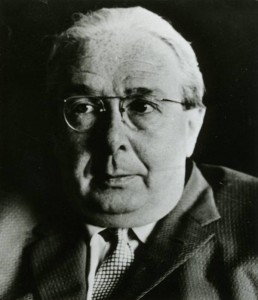Was the use of atomic bombs justified to achieve victory in WWII?
Was the use of atomic bombs justified to achieve victory in WWII in the Pacific on terms satisfactory to the United States?
What do you think?
SUPPORTERS OF THE USE OF THE ATOMIC BOMBS GENERALLY EMPHASIZE THESE BASIC PREMISES:
- The Japanese were the aggressors, starting with the drive for Manchuria in 1931
- The Japanese were not ready to surrender
A political stalemate had developed between the military and civilian leaders of Japan, the military increasingly determined to fight despite all costs and odds and the civilian leadership seeking a way to negotiate an end to the war. The military hoped that if they could hold out until the ground invasion of Japan began, they would be able to inflict so many casualties on the Allies that Japan still might win some sort of negotiated settlement.
Defeat was possible – surrender was impossible.
- Every day the war continued thousands were suffering and dying
My mother would not have survived if the War would have lasted a couple of months longer and I would not have been far behind her. Six months at the most. Dietitians who analyzed the starvation diet in Camp Banjoebiroe 10 and the other camps in Central Java all concluded that our diet was so deficient that it inevitably would have lead to our death as a result of starvation.
- The use of the atomic bombs saved many more lives than it took, including Japanese military and civilian lives, and was preferable to the planned invasion
Winston Churchill expressed this point eloquently and succinctly in a speech to the British House of Commons in August 1945 in his capacity as Leader of the Opposition:
“There are voices which assert that the bomb should never have been used at all. I cannot associate myself with such ideas. . . . I am surprised that very worthy people—but people who in most cases had no intention of proceeding to the Japanese front themselves—should adopt the position that rather than throw this bomb, we should have sacrificed a million American and a quarter of a million British lives.”
In his surrender speech of August 15, 1945, Emperor Hirohito said:
“ Moreover, the enemy has begun to employ a new and most cruel bomb, the power of which to do damage is, indeed, incalculable, taking the toll of many innocent lives. Should We continue to fight, not only would it result in an ultimate collapse and obliteration of the Japanese nation, but also it would lead to the total extinction of human civilization.
Such being the case, how are We to save the millions of Our subjects, or to atone Ourselves before the hallowed spirits of Our Imperial Ancestors? This is the reason why We have ordered the acceptance of the provisions of the Joint Declaration of the Powers.”
PEOPLE OPPOSED TO THE USE OF THE ATOMIC BOMBS STRESS THE FOLLOWING POINTS:
- The bombings were fundamentally immoral
General Curtis LeMay, a fierce warrior who directed all strategic air operations against the Japanese home land, is quoted to have said, “If we’d lost the war, we’d all have been prosecuted as war criminals.”
What makes it immoral if you lose and not immoral when you win?
- The bombings were war crimes and crimes against humanity
 I had a couple of personal encounters with the physicist Leo Szilard in the early 1960’s when he lived in a house in La Jolla, CA owned by my boss/partner.
I had a couple of personal encounters with the physicist Leo Szilard in the early 1960’s when he lived in a house in La Jolla, CA owned by my boss/partner.
Leo Szilard had proposed accelerating the atom bomb research in a letter to President Roosevelt he wrote in 1939 for Albert Einstein’s signature and he played a major role in the Manhattan Project that produced the first atomic bombs. Towards the end of the war he became opposed to the bombs on the moral issues and argued indirectly, similar to Curtis LeMay, that we would have defined the dropping of atomic bombs on cities as a war crime.
U.S. News & World Report had published an interview with Leo Szilard in 1960 that was interesting to me because of what he did say and even more because of what he did not go into. It handed me plenty to bring up to him during our short encounters. My main point, of course, was that the use of the bombs saved more lives than it sacrificed. It saved an inestimable number of lives including the lives of my parents, my brother and me and of a large percentage of some 400,000 – 500,000 prisoners of war and internees. He was patient with a young whippersnapper half his age while making it clear that he felt more strongly opposed to the atomic bomb as time went by. He was a kind and humble man, without any affectations. He would have been a wonderful uncle.
- The bombings were militarily unnecessary to win the war.
The entry of the Soviet Union in the war on August 8, 1945 was more decisive than the atomic bombs. Without the Soviet entry in the war by invading Manchuria, the Japanese would have continued to fight.
- The dropping of the second bomb on Nagasaki, 3 days after Hiroshima, was certainly unnecessary
- The bombings were state terrorism
So, what do you think?
Please give us your opinion by posting a Comment below


5 Responses to “Was the use of atomic bombs justified to achieve victory in WWII?”